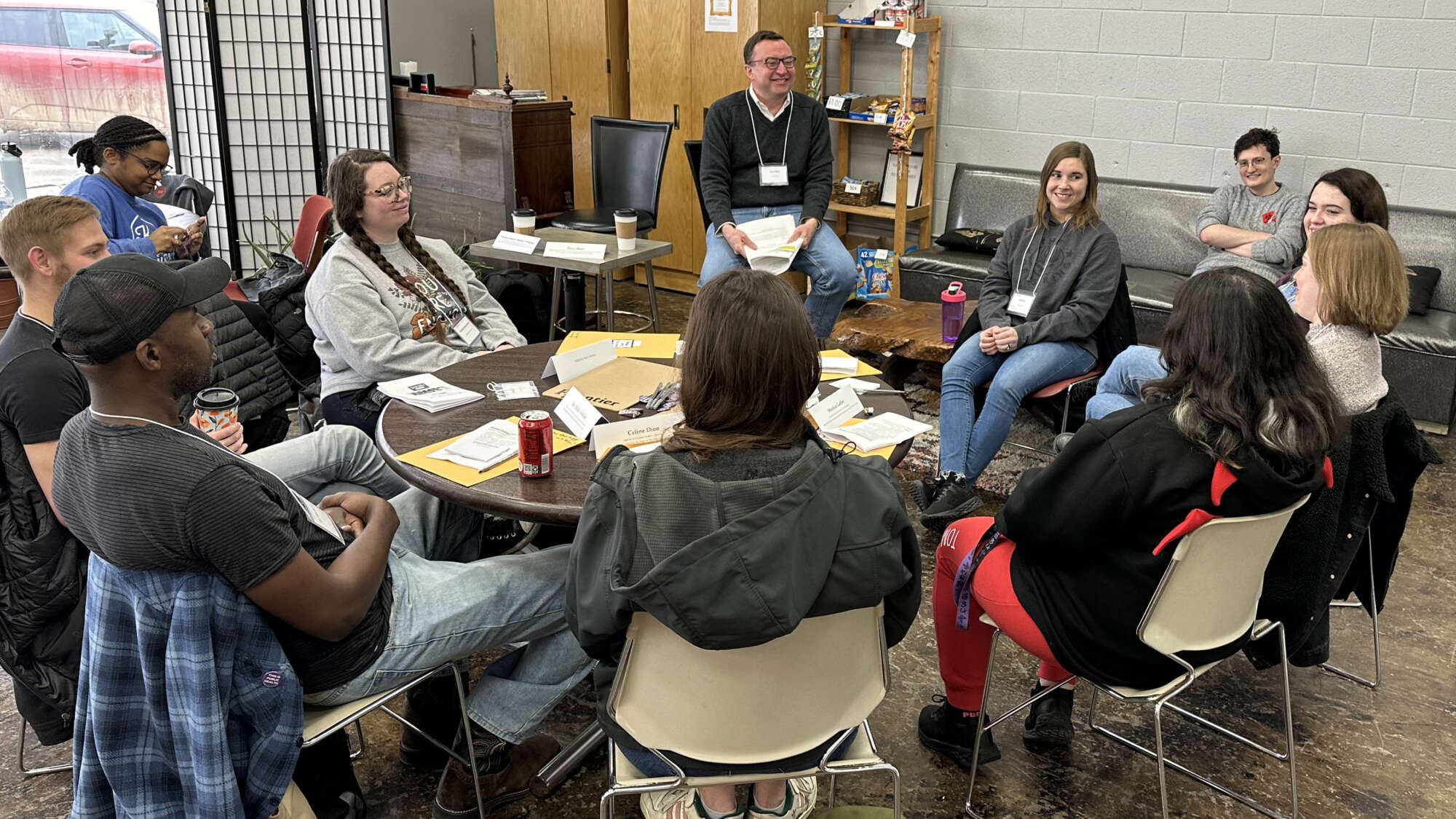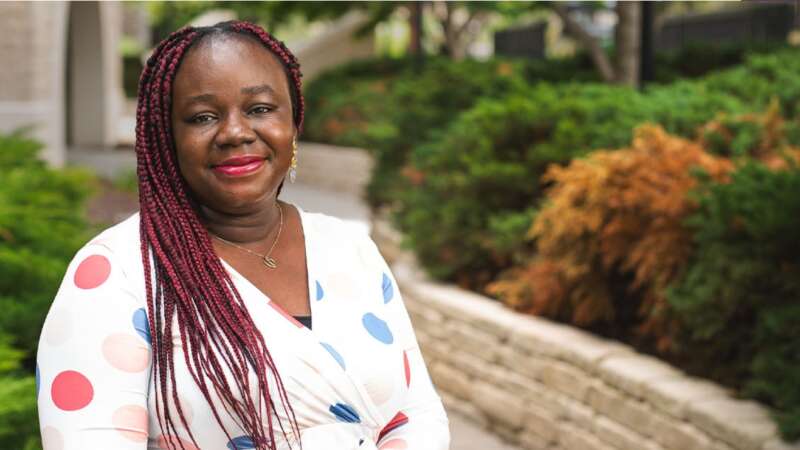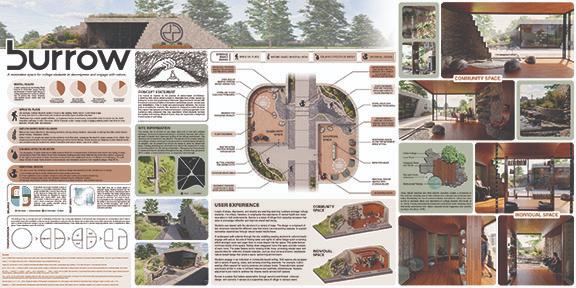Frontier Field Trips give K-State students the chance to flex their minds in creative ways.
Who — or what, precisely — killed Christopher Shawshank and left scores of other elderly Mansfield pensioners gravely ill? The mystery hung palpably over the group of makeshift Kansas State University public health detectives aiming to find the answer.
Could it have been the warm baked bread they had all eaten, improperly handled by a nearby bakery? Perhaps the cold-meat sandwiches had not been sliced and stored correctly at the deli. Maybe the fish and chips, a popular order, had not been cooked to adequate temperatures.
Whatever it was, the team of K-State student investigators was on the case.
This, of course, was not a real “murder” mystery, at least not in this century or even on this continent. It was, however, a reenactment based on a real case of severe foodborne illness that gripped the Scottish countryside in the mid-’90s and left more than a dozen dead.
But even nearly 30 years later and in a small Kansas town, the public health case study proved to be an engaging way to teach students about public health, history and policy, and it’s the type of academic experience that is setting apart Kansas State University as a destination for hands-on learning.
For the past 16 years, undergraduate and graduate students at K-State have had dozens of paid-for opportunities to travel around the state and country for experiential learning through the Frontier Field Trip program.
Justin Kastner, a co-director of the program and professor of food safety and security at K-State, said the trips are about helping students grow as academics and well-rounded people.
“That means having some level of joy and fulfillment in what they’re studying and a sense of self-efficacy in knowing they can be competent in solving a problem in their field,” Kastner said. “To the extent that students leave a field trip with new friends, a rediscovered joy of learning and perhaps new knowledge or skills, I think those students are in a better position from a standpoint of being able to grow as scholars.”
Each trip is designed to include opportunities and experiences in policy, history and skill development. Accordingly, most trips include visits to places like trade ports, policy centers, library archives and other “dynamic venues,” Kastner said. Students also typically have literal hands-on opportunities with historic records and other artifacts they might find at those locations.
To date, many of the field trips’ students have come from science, technology, engineering and math backgrounds.
In Kastner’s experience, though, students in those areas of study usually have the most to gain, since they’re typically not as steeped in the scholarship of history or policy.
“That’s the part I’ve grown to love the most, in that we might go look at materials in a library, like the history of microbiology, or the history of food safety or the history of mosquito-borne diseases,” he said. “Having students spend time in an archive just interacting with materials — they learn it can be exciting to learn about the history and some of the antecedents for what they’re doing now.”
Margarita Alvarez, junior in food science from Emporia, was one of the students on the December trip. A previous Frontier Field Trip attendee, Alvarez said she has deeply appreciated how the trips broaden her academic horizons.
“It made me more aware of the policies that go into public health crises,” she said. “Whenever we broke out into smaller groups, I had a chance to talk with a food science professor, and she explained how some of the major foodborne pathogens spread.”
Cross-country trips remind K-State students to find joy in learning
One of the biggest threats to students’ joy of learning, or even their ability to succeed academically and graduate, is the risk of burning out, Kastner said.
That’s why the program makes sure that most costs, including transportation and lodging, are paid for, typically through state funding and grants.
“That’s important for us, because if students can show up knowing it’s not anything that they will get graded on and that it’s already paid for, they lean forward into it with a sense of relaxation and lack of pressure,” Kastner said. “We can’t get rid of the pressure that comes with coursework as part of being in a major or graduate program. But we have found that for most students, having this kind of extracurricular experiential learning makes them return more energized and passionate about their programs.”
It’s this learning without expectation — without assignments, grades or pressure — that sets the Frontier Field Trips apart as experiences unique to Kansas State University.
In early December, the 40th Frontier Field Trip took a couple dozen students to a hotel and shops in downtown Council Grove, where they participated in the reenactment based on the Scottish foodborne illness outbreak.
Students roleplayed as reporters, public health officials and scientists, complete with names like Posh Spice, Robbie Williams and Ethan Hunt in keeping with the overall 1990s theme of the weekend.
As the students delved down into the mystery of the foodborne illness’s origin, they found the common thread: A local sandwich shop had defied public health orders and sold sandwich meat contaminated with an unspecified, but deadly, pathogen.
Later, Kastner and Jason Ackleson, a political scientist and adjunct faculty in diagnostic medicine and pathobiology, discussed the political and policy ramifications of the real-life E. coli outbreak in Scotland in 1996, which left 18 people dead and led to reforms in food safety education and regulations. Valentina Trinetta, associate professor of animal sciences and industry, also led a discussion on foodborne pathogens.
Kastner said that although a main focus of the program is to allow students an educational break from their regular coursework, the Frontier Field Trip still gives K-State students the kind of college opportunities that set them apart from other graduates.
The next closest thing would be a paid internship, he said.
“I think we are, in all humility, helping provide one way for students to have an experiential learning experience,” Kastner said. “It opens their eyes to possible fields, jobs and careers.”
Read the full story by Rafael Garcia.
*First published in February 2024.



